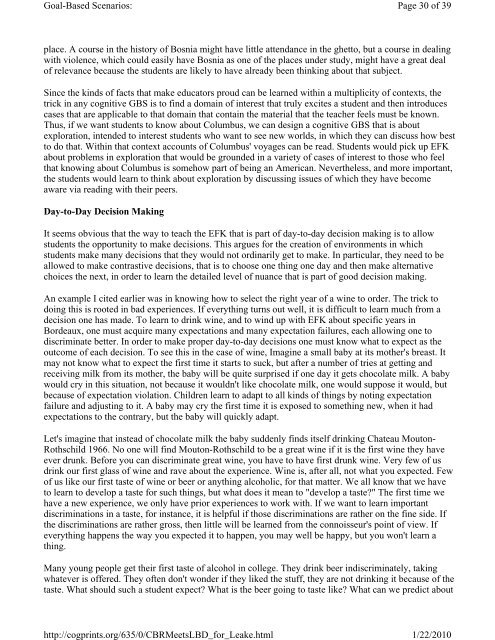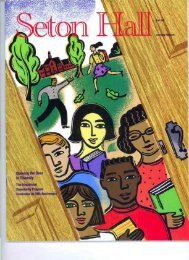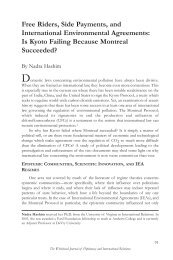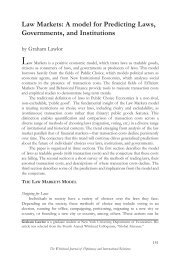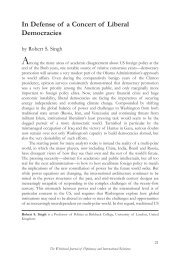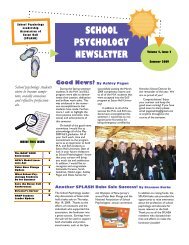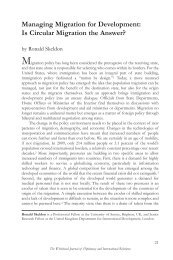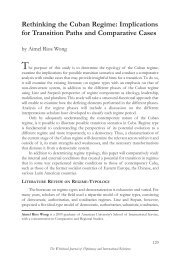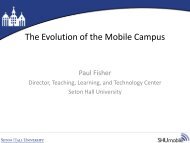Case-Based Reasoning Meets Learning by Doing
Case-Based Reasoning Meets Learning by Doing
Case-Based Reasoning Meets Learning by Doing
Create successful ePaper yourself
Turn your PDF publications into a flip-book with our unique Google optimized e-Paper software.
Goal-<strong>Based</strong> Scenarios:<br />
place. A course in the history of Bosnia might have little attendance in the ghetto, but a course in dealing<br />
with violence, which could easily have Bosnia as one of the places under study, might have a great deal<br />
of relevance because the students are likely to have already been thinking about that subject.<br />
Since the kinds of facts that make educators proud can be learned within a multiplicity of contexts, the<br />
trick in any cognitive GBS is to find a domain of interest that truly excites a student and then introduces<br />
cases that are applicable to that domain that contain the material that the teacher feels must be known.<br />
Thus, if we want students to know about Columbus, we can design a cognitive GBS that is about<br />
exploration, intended to interest students who want to see new worlds, in which they can discuss how best<br />
to do that. Within that context accounts of Columbus' voyages can be read. Students would pick up EFK<br />
about problems in exploration that would be grounded in a variety of cases of interest to those who feel<br />
that knowing about Columbus is somehow part of being an American. Nevertheless, and more important,<br />
the students would learn to think about exploration <strong>by</strong> discussing issues of which they have become<br />
aware via reading with their peers.<br />
Day-to-Day Decision Making<br />
Page 30 of 39<br />
It seems obvious that the way to teach the EFK that is part of day-to-day decision making is to allow<br />
students the opportunity to make decisions. This argues for the creation of environments in which<br />
students make many decisions that they would not ordinarily get to make. In particular, they need to be<br />
allowed to make contrastive decisions, that is to choose one thing one day and then make alternative<br />
choices the next, in order to learn the detailed level of nuance that is part of good decision making.<br />
An example I cited earlier was in knowing how to select the right year of a wine to order. The trick to<br />
doing this is rooted in bad experiences. If everything turns out well, it is difficult to learn much from a<br />
decision one has made. To learn to drink wine, and to wind up with EFK about specific years in<br />
Bordeaux, one must acquire many expectations and many expectation failures, each allowing one to<br />
discriminate better. In order to make proper day-to-day decisions one must know what to expect as the<br />
outcome of each decision. To see this in the case of wine, Imagine a small ba<strong>by</strong> at its mother's breast. It<br />
may not know what to expect the first time it starts to suck, but after a number of tries at getting and<br />
receiving milk from its mother, the ba<strong>by</strong> will be quite surprised if one day it gets chocolate milk. A ba<strong>by</strong><br />
would cry in this situation, not because it wouldn't like chocolate milk, one would suppose it would, but<br />
because of expectation violation. Children learn to adapt to all kinds of things <strong>by</strong> noting expectation<br />
failure and adjusting to it. A ba<strong>by</strong> may cry the first time it is exposed to something new, when it had<br />
expectations to the contrary, but the ba<strong>by</strong> will quickly adapt.<br />
Let's imagine that instead of chocolate milk the ba<strong>by</strong> suddenly finds itself drinking Chateau Mouton-<br />
Rothschild 1966. No one will find Mouton-Rothschild to be a great wine if it is the first wine they have<br />
ever drunk. Before you can discriminate great wine, you have to have first drunk wine. Very few of us<br />
drink our first glass of wine and rave about the experience. Wine is, after all, not what you expected. Few<br />
of us like our first taste of wine or beer or anything alcoholic, for that matter. We all know that we have<br />
to learn to develop a taste for such things, but what does it mean to "develop a taste?" The first time we<br />
have a new experience, we only have prior experiences to work with. If we want to learn important<br />
discriminations in a taste, for instance, it is helpful if those discriminations are rather on the fine side. If<br />
the discriminations are rather gross, then little will be learned from the connoisseur's point of view. If<br />
everything happens the way you expected it to happen, you may well be happy, but you won't learn a<br />
thing.<br />
Many young people get their first taste of alcohol in college. They drink beer indiscriminately, taking<br />
whatever is offered. They often don't wonder if they liked the stuff, they are not drinking it because of the<br />
taste. What should such a student expect? What is the beer going to taste like? What can we predict about<br />
http://cogprints.org/635/0/CBR<strong>Meets</strong>LBD_for_Leake.html<br />
1/22/2010


